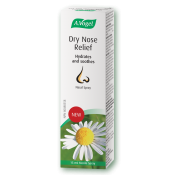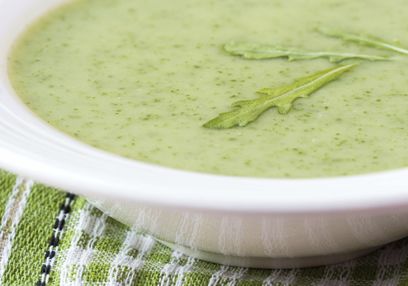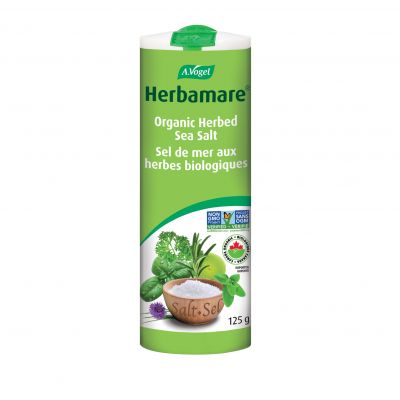What is mucus?
Mucus is a colorless, clear sticky substance that is present in the nose, sinuses, mouth, throat and lungs. Most of the time mucus in the nose is not bothersome and clears itself by sliding down the back of the throat. It only starts to become irritating when the mucus turns thick, dries out and forms boogers, starts running or blocks the nasal passage. This is usually an indication of an infection caused by a cold or flu virus or allergies causing sinusitis.
The role of nasal mucus
Mucus keeps the lining of the airway moist and protects it against foreign substances, dust, allergens and bacteria.2 Think of nasal mucus as a filter. It filters inhaled air and traps unwanted particles and substances before they have a chance to enter into the lungs and cause irritation or damage.
The mucus flows freely along the nasal passages and drains through the nasal cavity. This flow is helped by fine nasal hairs (cilia) and hair cells inside the nose. Nose hair also acts as another form of filter, capturing dust particles and germs that are inhaled before they even enter deeper into the nasal passages.
This is one of the reasons why trimming nose hair is not the best idea because it can allow more allergens and bacteria to enter the nose and cause infections more regularly.
Boogers and dry nose, an irritating problem
A dry nose is often caused by environmental factors, certain illnesses and can even result as a side effect of some medications. When the mucous membranes of the nasal passages dry out, they can become very irritated and certain symptoms may occur such as itching, burning, painful cracking, crust formation (boogers) and bleeding.
Causes of a dry nose:
- Inhaling very cold air or very dry air (from heating systems)
- Inhaling dry air from air conditioned environments
- Diseases like Sjӧgren's Syndrome
- Allergies and a runny nose
- Overuse of medications like antihistamines and certain nasal decongestants
- Overuse of particular nasal sprays containing locally acting decongestants or cortisones
- Hormonal changes (i.e. during menopause)
Boogers can result from an overly dry nasal passage. When the mucus in your nose is not viscous enough to be swept down into the nasal cavity because of one of the factors mentioned above, it will end up drying out inside of your nose, usually close to the nasal openings. The mucus becomes dry and crusty, ultimately forming what we call a booger.
One way to clear out boogers is to use a tissue to softly blow them out. Do not pick boogers as studies have shown that picking boogers can introduce more harmful bacteria into the nose, potentially leading to more serious infections.
People suffering from a dry nose are more likely to catch cold and flu viruses, hay fever or develop sinusitis.
As mucus in the nose is the first line of defense when it comes to trapping harmful bacteria and allergens, as a nose that is not producing enough mucus can greatly increase the risk of allowing these harmful substances to pass into the rest of the airway.
Help for a dry nose
Luckily, treating a dry nose is easier than treating a blocked one. By implementing some simple lifestyle changes to prevent the nasal mucus membrane from drying out, most of the symptoms of a dry nose will disappear.
Try the following:
- Use a humidifier to keep moisture in the air
- When working in an air conditioned environment, try to keep the temperature stable (not too cold or too hot)
- Use natural remedies to thin out mucus if the nose is blocked, instead of using decongestants that can dry out the nose
- Do not overuse antihistamines
- Do not pick boogers
- Use a steamer to steam the nose and sinuses
- Alcohol and smoke can have drying effects, try to avoid them
- Use a natural hydrating and emollient nasal spray such as A.Vogel's Dry Nose relief spray
How nasal sprays help
Many people reach for nasal sprays for help with a dry nasal passage. The problem with conventional nasal sprays that are prescribed or available in most pharmacies is that many of them end up drying out the nasal passage even further, while some are habit forming and can cause rebound congestion.
Some contain chemical preservatives may cause further damage and even thinning of the nasal passages. There are also so many to choose from, and without knowing which ingredients to look out for, those shelve options may seem daunting and overwhelming. Making the wrong choice in this department may cause more harm than good so one must be vigilant and well informed.
Saline sprays, like Dry Nose Relief, are safe to use and can greatly improve the mucus flow in a dry nose. It also helps to clear out irritants and bacteria.
A.Vogel's Dry nose relief contains Hyaluronic acid which is ideal for soothing an irritated and dry nasal passage. It offers long lasting lubrication and can keep the nose hydrated and soothed for long periods of time. The spray works to loosen up encrusted nasal boogers and even helps to loosen mucous at the back of the throat as it thins the mucous and facilitates dripping down from the nasal cavity into the throat, thus helping with expectoration.
Hyaluronic acid is a substance found in the extracellular matrix of connective tissues. It is known for its mucosal conditioning and healing characteristics. It works by repairing and supporting the epithelial cells in the mucus membranes so that they can function optimally and produce enough mucus for the airway.8 Studies have even shown its effectiveness in boosting recovery in patients receiving nose or sinus surgeries.
The spray, offering long lasting lubrication, also contains chamomile, which is a plant that is known to help soothe the mucous membrane of the nasal passages and helps to relive inflammation that may be present.
Dry nose relief, containing saline and hyaluronic acid not only relieves the symptoms of a dry nose, but it also helps to prevent cold and flu because it boosts healthy mucus production and mucus flow and protects the nasal membrane acting like a barrier. This means that allergens and bacteria will be trapped on first inhalation and discarded.
Dry nose relief spray along with additional preventative measures (using humidifiers, etc.) will give those pesky boogers no chance to form or take hold this cold and flu season.
Cheers to a healthy winter!
References :
https://health.clevelandclinic.org/mucus-and-phlegm-what-to-do-if-you-have-too-much/
https://www.ncbi.nlm.nih.gov/pmc/articles/PMC3199822/
https://www.health.harvard.edu/diseases-and-conditions/what_to_do_about_sinusitis
https://www.ncbi.nlm.nih.gov/pmc/articles/PMC4575661/
https://www.jstor.org/stable/10.1086/506401?seq=1
https://www.sjogrens.org/files/brochures/DryNoseSinuses.pdf
https://www.ncbi.nlm.nih.gov/pmc/articles/PMC4575661/







